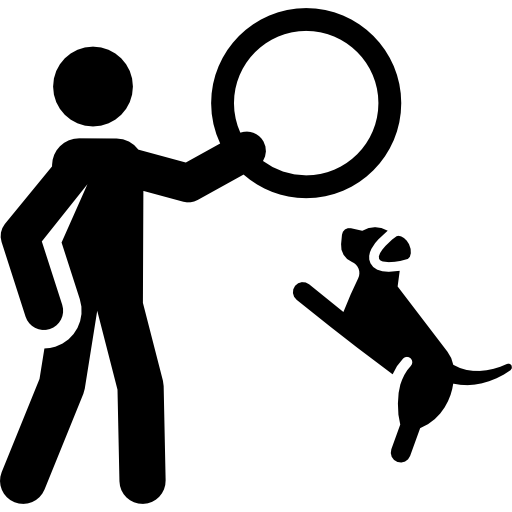
This breed, which is smart, well-mannered, and lively, became popular in France during the Industrial Revolution. The French Bulldog is widely valued after because to his calm, friendly attitude, but he also serves as a great guard dog and needs very little in the way of exercise. His coat is fine and silky, so it requires minimal care.

11-13 inches

Below 28 pounds

10-14 years

Playful, affectionate, Good-natured, Alert, Curious, Relaxed and Easy going

They enjoy the company of their family members

Easy to Train, No Requirement of hard Training

Excessive Barkers, Unique Vocalization, Snorts and howls. With proper training barking can be controlled.


Brindle, fawn, white-and-brindle, or white, Pied and Cream

Short Length, Smooth Texture, Minimal Shedding, Easy to Groom, Seasonal Changes

Have various health issues

High-Quality Dog Food, Age-Appropriate Food, Water Availability
Training and exercise are essential for the overall well-being and development of French Bulldogs. Here are some tips to help you effectively train and exercise your French Bulldog
Training Tips


Exercise
Game ideas
Because of their brachycephalic form and hereditary predispositions, French Bulldogs are prone to a variety of health problems.
To guarantee their total health and well-being, they need regular veterinarian treatment, correct management, and preventative measures.


A French Bulldog’s nutrition is very important to his or her health and well-being. When planning their diet, keep in mind the following details:

The French Bulldog (or “Frenchie”) originated in England in the 1800s. Small-sized Bulldogs were the ancestors of French Bulldogs. When lacemaking fell out of favor during the Industrial Revolution, these dogs found their way to France through various trade routes.
In France, the small bulldogs gained popularity, particularly among the Parisian working class and artists. They were cherished for their friendly temperament, adaptability to apartment living, and distinctive bat-like ears. The breed’s appearance quickly caught the attention of the upper class as well, and soon French Bulldogs became fashionable pets among society ladies and the Parisian elite.
The breed’s development and refinement were greatly influenced by several factors. The crossing of the small bulldogs with local French terriers and other breeds, such as the Pug, played a significant role in shaping the modern French Bulldog we know today. Breeders focused on creating a companion dog with a compact size, muscular build, and a unique, snub-nosed face.
In the early 20th century, French Bulldogs gained international recognition and began to spread to other countries, including the United States. The breed quickly gained popularity in America, and in 1898, the French Bulldog Club of America was established to promote and protect the breed’s interests.
Throughout the years, French Bulldogs have continued to capture the hearts of dog lovers worldwide. Their distinctive appearance, coupled with their affectionate nature and easygoing temperament, has made them a beloved companion breed. They have become a popular choice for families, singles, and city dwellers alike.

French Bulldogs originated in England and were later popularized in France.
Despite their small size, they have a surprisingly loud and distinctive voice.
French Bulldogs are known for their friendly and affectionate nature, making them great family pets.
French Bulldogs are notorious for their snoring, which can range from light to quite loud.
Despite their small size, they can be quite stubborn and have a mischievous streak.
French Bulldogs have a wide variety of coat colors and patterns, including brindle, fawn, cream, and pied.
They are intelligent dogs but can be a bit stubborn when it comes to training. Consistency and positive reinforcement methods work best.
They are known for their distinctive bat-like ears, which are one of their most recognizable features.
They are excellent companions for apartment dwellers due to their adaptability to small living spaces.
They are often referred to as "clowns in the cloak of a philosopher" due to their playful and humorous personalities.
They are prone to flatulence, and their owners often affectionately refer to them as "little gas factories."
French Bulldogs are generally good with children, and their patient and gentle nature makes them suitable playmates.
French Bulldogs are not the best swimmers due to their top-heavy build and short legs, so caution should be taken around water.
They are often described as "lap dogs" because they love nothing more than snuggling up with their owners.
French Bulldogs are often described as easygoing and playful, bringing joy and laughter to their households. They possess a delightful sense of humor and are known to exhibit quirky behaviors that endear them to their owners. Despite their small size, they have a courageous spirit and will fiercely defend their loved ones if the need arises.
While they are not considered high-energy dogs, French Bulldogs still benefit from regular exercise and mental stimulation to keep them happy and healthy. They enjoy short walks, interactive play sessions, and engaging toys that stimulate their minds.
French Bulldogs may experience certain health issues related to their breathing and temperature regulation. Potential owners should be aware of these considerations and ensure proper care, including regular visits to the veterinarian.
